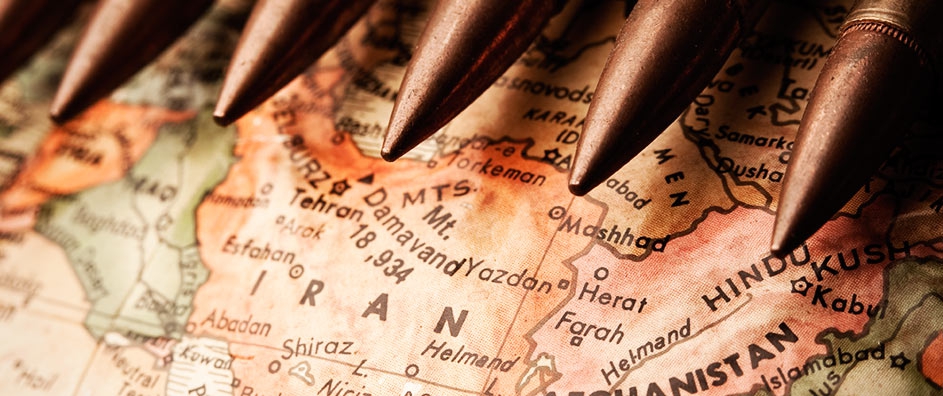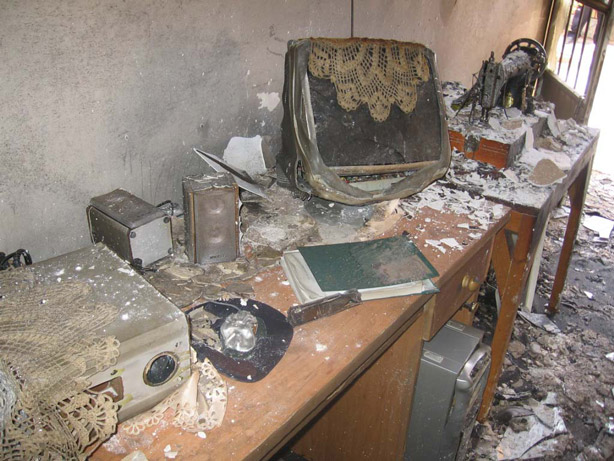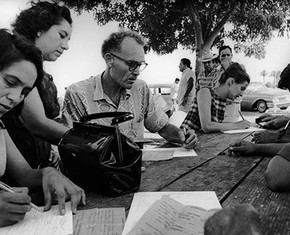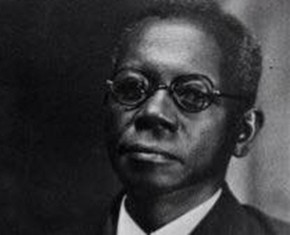The views expressed in our content reflect individual perspectives and do not represent the authoritative views of the Baha'i Faith.
O people of Persia! How long will your torpor and lethargy last? You were once the lords of the whole earth; the world was at your beck and call. How is it that your glory has lapsed and you have fallen from favor now, and crept away into some corner of oblivion? You were the fountainhead of learning, the unfailing spring of light for all the earth, how is it that you are withered now, and quenched, and faint of heart? You who once lit the world, how is it that you lurk, inert, bemused, in darkness now? – Abdu’l-Baha, The Secret of Divine Civilization, p. 91.
As the 1990s ended and the new millenium began, Iran’s Baha’i community sensed a faint ray of hope.
In 1997 Iran elected President Muhammad Khatami, previously a hard-line cleric, on a platform of liberalization. No one can assess Khatami’s personal sincerity or commitment to liberalize the country, but the push for change by those around him certainly gave a glimmer of optimism to the Baha’i community that the harsh persecution of the past two decades might diminish.
Within a few years, however, it became clear that nothing much had changed under the surface. The hard-line clerics around Supreme Leader Ayatollah Khamenei did not let control slip from their fingers–regardless of the democratic wishes of the Iranian people–nor did Khatami himself successfully push for radical change. The tide of reform quickly retreated, and the Baha’i community soon faced renewed hardship, oppression and Nazi-like persecution.
Then in 2005, new President Ahmadinezhad swept to power, backed by hard-line clergy of the Hujjatiyyih faction–who had always been determined and deadly enemies of the Baha’i Faith. As a result, the persecution after Ahmadinezhad’s rise returned to a level not seen since the early years of the Islamic Revolution. This time, however, the evidence reveals a much more systematic and thorough persecution campaign, sweeping up any of the few Baha’is who may have escaped notice in government or private employment, and now focusing on persecuting self-employed Baha’is with small businesses.
In the early days of the Iranian revolution, Islamic revolutionary cadres broke into the National Baha’i offices in Tehran and took away the Baha’i membership lists held there. Evidence suggests that by using these lists, or by some other unknown means, the authorities have made an intense effort since 2005 to locate every individual Baha’i, to determine the source of that Baha’i’s income and to try to cut it off.
In much the same way the Nazi regime initially went about identifying German Jews—by raiding synagogues and stealing the information they found there—the Iranian government now targets each individual Baha’i and attempts to starve them and their families. This identification of every individual adherent of a religion, according to human rights experts, always precedes mass extermination.
These genocidal measures—despite Iran’s official denials–are centrally planned.
A government letter dated 29 October 2005, obtained in March of 2006 by the United Nations Commission on Human Rights’ Special Rapporteur on Freedom of Religion or Belief, Ms. Asma Jahangir, caused her to become “highly concerned” about the situation of the Baha’i community in Iran. This official letter, marked ‘Highly Confidential’ and signed by the Chairman of Command Headquarters of the Iranian Armed Forces, is addressed to the head of the Armed Forces of Iran and copied to the Police, the Intelligence Services and the Revolutionary Guard. It states that, in accordance with the instructions of Supreme Leader Ayatollah Khamanei, “all of the activities” of the Baha’i community “including political, economic, social and cultural” activities should be monitored and a “comprehensive and complete report” should be compiled “for the purpose of identifying all of the individuals” of the community.
A large body of evidence confirms the authenticity of this letter. From this time on, Iran’s provincial governors received orders to monitor and manage the social and economic activities of all Baha’is. The government and its agencies have also compiled lists to identify, spy on and oppress Baha’is locally; one of many examples came in a letter dated 2 May 2006 from the Trades, Production, and Technical Services Society of Kirmanshah to the Union of Battery Manufacturers, which requests “a list of the names of those who belong to the Baha’i sect and are under the jurisdiction of your union.”
The Iranian government has threatened, closed or confiscated Baha’i-owned businesses, with most of the larger ones seized and their assets confiscated early in the Revolution. The owners of these larger Baha’i businesses often fled the country, their lives and families threatened. Then, over the years, many smaller Baha’i businesses faced various levels of persecution, from boycotts organized by religious leaders, to damage and looting, to forced closure and confiscation.
During the course of 2007, however, evidence reveals that the government of Iran began a deliberate and systematic campaign to close down all Baha’i-owned businesses. As just one example, a letter from the Headquarters of the Intelligence and National Security Force dated 9 April 2007, addressed to all police forces throughout Iran, instructs them to identify all Baha’i-owned businesses in their area and to close down certain ones. The detailed letter even names the categories:
All businesses in the categories of culture, advertising and commerce: newspapers and periodicals, jewelry and watch-making, coffee shops, print shops, the tourist industry, car rentals, publishing and bookselling, hostel and hotel management, tailoring training institutes, photography and film recording, Internet gaming, computing and Internet cafés.
- All food-related businesses where Baha’is might “contaminate” the food of Muslims (Some fundamentalist Muslims regard Baha’is as ritually impure, such that even touching food renders it inedible): catering at reception halls, buffets and restaurants, grocery shops, kebab shops, cafés, butchers, supermarkets, ice cream parlors, fruit juice and soft drink shops, pastry shops, coffee shops.
- All businesses where the Baha’i owner is successful and the business is highly profitable.
As a result of these orders, during the course of 2007 the pressure on smaller Baha’i businesses intensified–and officials forced a large number of Baha’i businesses in all parts of the country to close, either by refusal of licenses, withholding of supplies, boycotts or eviction from their premises. Where Baha’is owned businesses in partnership with Muslims, government forces applied pressure until the Baha’is were forced out of the company.
These hidden, genocidal anti-Baha’i rulings and actions, targeted very specifically at the country’s largest religious minority, have only one purpose–the complete destruction of the Iranian Baha’is.


















Comments
Sign in or create an account
Continue with Googleor